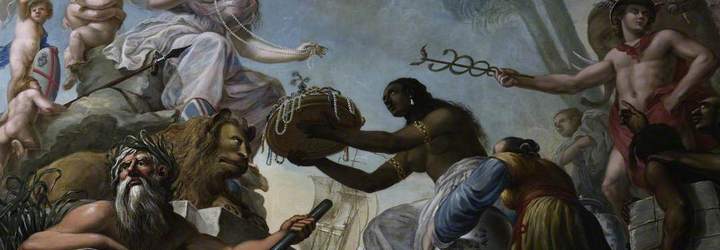Early modern history

Early modern history at the University of Nottingham covers the period 1500-1815
The period saw the ideas and culture of the Renaissance gradually lead to the development of the Enlightenment and the start of the Industrial Revolution in Europe. Maritime exploration and the search for new markets was particularly notable for the discovery of what Europeans termed ‘The New World’ – and particularly notorious for encouraging the colonisation and exploitation of the Atlantic World, as well as the inception and expansion of a Transatlantic slave trade. The Protestant Reformation and Catholic Counter-Reformation provoked developments in theology and ideology, leading to episodes of enlightened toleration and vicious persecution across Europe and the Atlantic World.
The stresses and strains of the period gave rise to large-scale popular protest, the glimmerings of popular democracy, and increasing urbanisation.
The technological innovations of so-called ‘Early Modern Military Revolution’ were paralleled (and often linked) to developments in medicine as it moved away from traditional Galenic humoral theory to more scientific observational methods. On the other side of the world, the fragmentation of the Mughal Empire offered increasing opportunities for European powers to appropriate trade, income and ultimately political control of large swathes of land and peoples in Asia.
The early modernist presence in the Department of History has grown considerably in recent years, and now embraces a wide range of specialisms and publications in a variety of themes (including urbanisation, witchcraft, maritime exploration, the slave trade, gender, religion, consumer society, medicine, colonialism, conflict and post-conflict cultures and Black history), and geographical areas (including Britain, Europe, India and the Atlantic World). Nottingham’s early modernists are particularly enthusiastic participants in the Arts and Humanities Research Council's Midlands4Cities Postdoctoral Programme, and as such co-supervise a wide range of PhD students in conjunction with our colleagues in Birmingham, Leicester, De Montfort, Warwick and Nottingham Trent. We are also keen advocates of public history, and as such collaborate closely with archives and museums such as the National Civil War Centre and Nottingham Castle, and regularly publicise our work on TV, radio and public lectures.
You can read more about many of our exciting recent and current research projects on the early modern period below.
Image: Section from 'The East Offering its Riches to Britannia', Spiridione Roma (1737–1781), British Library